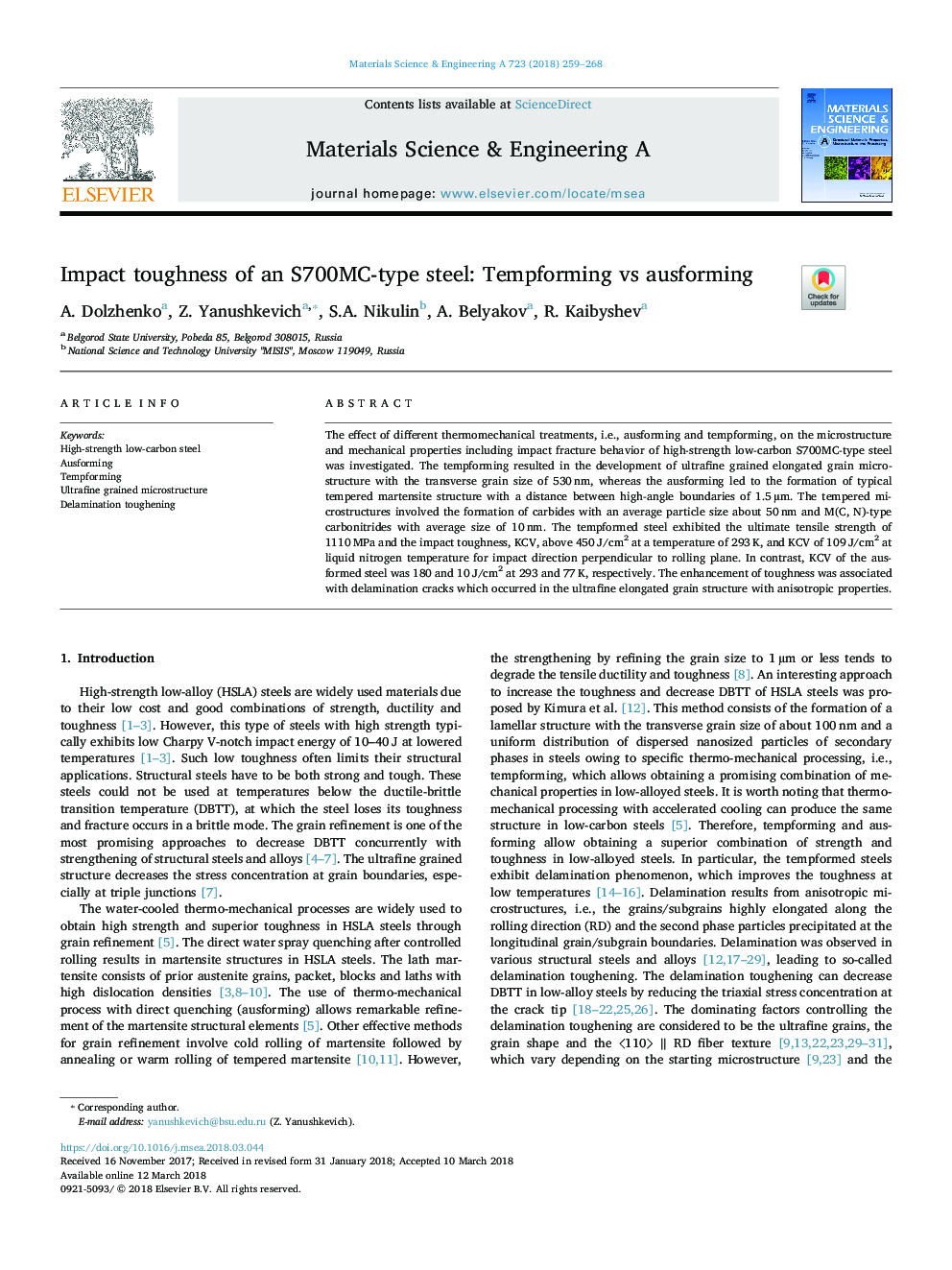| Article ID | Journal | Published Year | Pages | File Type |
|---|---|---|---|---|
| 7972690 | Materials Science and Engineering: A | 2018 | 10 Pages |
Abstract
The effect of different thermomechanical treatments, i.e., ausforming and tempforming, on the microstructure and mechanical properties including impact fracture behavior of high-strength low-carbon S700MC-type steel was investigated. The tempforming resulted in the development of ultrafine grained elongated grain microstructure with the transverse grain size of 530â¯nm, whereas the ausforming led to the formation of typical tempered martensite structure with a distance between high-angle boundaries of 1.5â¯Âµm. The tempered microstructures involved the formation of carbides with an average particle size about 50â¯nm and M(C, N)-type carbonitrides with average size of 10â¯nm. The tempformed steel exhibited the ultimate tensile strength of 1110â¯MPa and the impact toughness, KCV, above 450â¯J/cm2 at a temperature of 293â¯K, and KCV of 109â¯J/cm2 at liquid nitrogen temperature for impact direction perpendicular to rolling plane. In contrast, KCV of the ausformed steel was 180 and 10â¯J/cm2 at 293 and 77â¯K, respectively. The enhancement of toughness was associated with delamination cracks which occurred in the ultrafine elongated grain structure with anisotropic properties.
Related Topics
Physical Sciences and Engineering
Materials Science
Materials Science (General)
Authors
A. Dolzhenko, Z. Yanushkevich, S.A. Nikulin, A. Belyakov, R. Kaibyshev,
